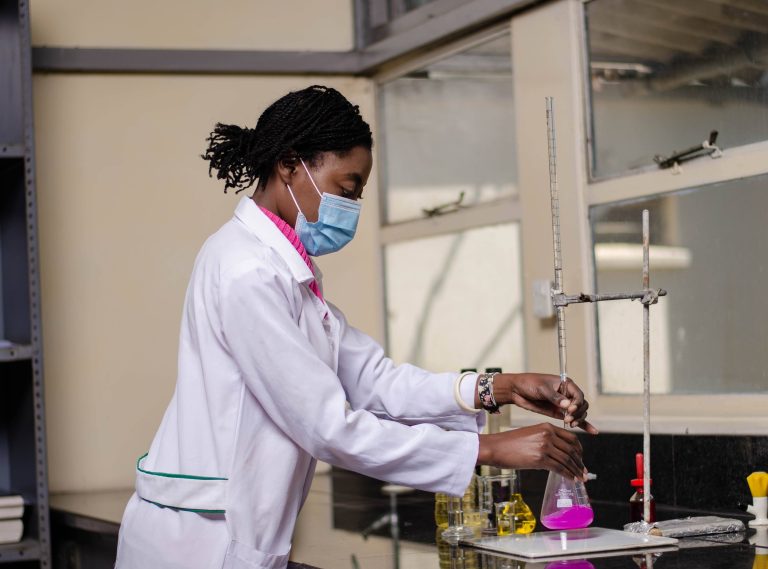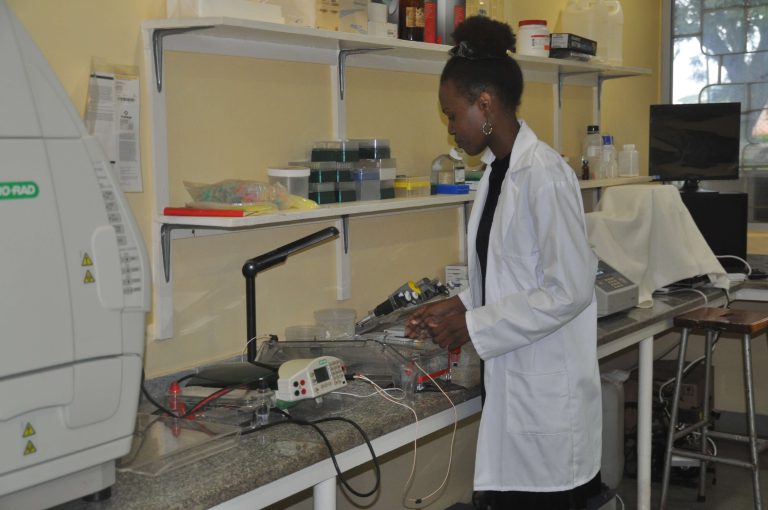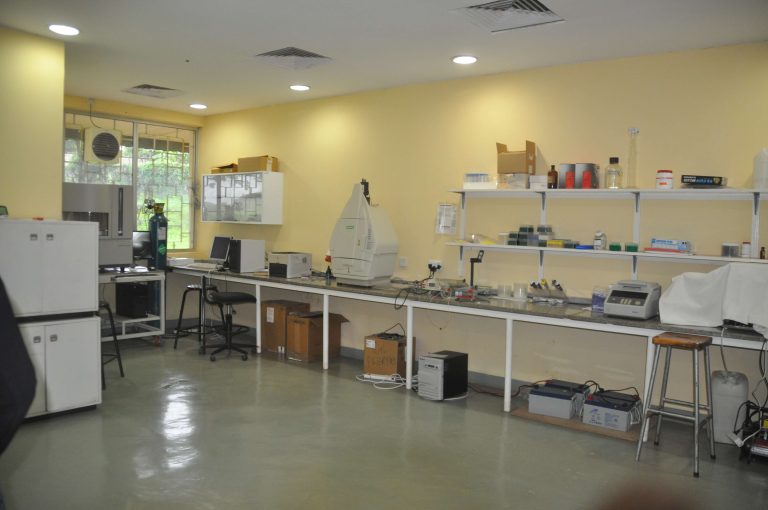ANIMAL SCIENCE RESEARCH
- Home
- ANIMAL SCIENCE RESEARCH




Animal Science Research is Located in Chilanga, and houses the following Laboratories:
The Livestock Productivity and Disease Control Laboratory,Mycotoxicology Laboratory and biotechnology lab.
 The laboratory can identify elucidation and make suggestion of solutions to problems that adversely affect livestock health and reproduction especially in the traditional/peasant sector.The Laboratory can provide consultancy on broad areas of reproductive patterns of local breeds of cattle, management practices, nutrition and pasture, distribution and seasonal activity of ticks, and ecology, biology and population dynamics of tsetse.The Laboratory through its extension services can help improve livestock productivity through integrated appropriate technologies and provide quality and effective research and development services to the livestock sector for improved agricultural production and food security.
The laboratory can identify elucidation and make suggestion of solutions to problems that adversely affect livestock health and reproduction especially in the traditional/peasant sector.The Laboratory can provide consultancy on broad areas of reproductive patterns of local breeds of cattle, management practices, nutrition and pasture, distribution and seasonal activity of ticks, and ecology, biology and population dynamics of tsetse.The Laboratory through its extension services can help improve livestock productivity through integrated appropriate technologies and provide quality and effective research and development services to the livestock sector for improved agricultural production and food security.
 Carries out research in mycotoxins and also offers analytical testing services to the Zambian industry. Among them mycotoxins investigated are; Aflatoxin and fumonisin. Others include; deoxynivalenol, zearalenone and ochratoxin. The food matrices analyzed include groundnuts, maize, livestock feed and soya beans. The laboratory uses both screening and confirmatory methods for analyses. For screening, the lab uses standard fluorometric analytical methods to quantify with ease levels of toxins in foods/feeds to meet current technological trends in mycotoxin detection. For confirmatory test, the laboratory uses High Performance Liquid Chromatography (HPLC) method to quantify with ease the different mycotoxins. It has recently procured a Liquid Chromatography Mass Spectrometry (LCMS) through the International Atomic Energy Agency (IAEA) to expand its scope of residue testing.
Carries out research in mycotoxins and also offers analytical testing services to the Zambian industry. Among them mycotoxins investigated are; Aflatoxin and fumonisin. Others include; deoxynivalenol, zearalenone and ochratoxin. The food matrices analyzed include groundnuts, maize, livestock feed and soya beans. The laboratory uses both screening and confirmatory methods for analyses. For screening, the lab uses standard fluorometric analytical methods to quantify with ease levels of toxins in foods/feeds to meet current technological trends in mycotoxin detection. For confirmatory test, the laboratory uses High Performance Liquid Chromatography (HPLC) method to quantify with ease the different mycotoxins. It has recently procured a Liquid Chromatography Mass Spectrometry (LCMS) through the International Atomic Energy Agency (IAEA) to expand its scope of residue testing.
The laboratory is able to detect presence of such toxins in foods/feeds under research as well as service to industry. Due to their harmfulness many countries have put regulations on mycotoxins in foods. This may entail failure by Zambia to export certain products if not tested or if such tests indicate toxin concentration levels above set permissible limits may get affected and subsequently an economy. As part of the 8NDP, strategy 3 on enhancement of the export capability of produce as well as strategy 3 on the improvement of health through safer foods, it is envisaged that the laboratory will continue providing the critical platform to ensure conformity to the required standard.
 The main objectives of the Biotechnology Lab are to monitor the prevalence of genetically modified maize and soybean ingredients in different processed foods and grain on the Zambian market; to monitor compliance with the Biosafety Act and; to provide GMO testing analytical services to the public.Modern biotechnology has been recognized and acknowledged as one tool that has a potential for the promotion of human well-being by meeting critical needs for food and health care. Through modern biotechnology, a number of herbicide and insect tolerant crops have been commercialized. However, there have been concerns about the safety of the products of modern biotechnology. Two international instruments have been established to deal with the safety of biotechnology products. The Convention of Biodiversity (CBD) has articles that are aimed at ensuring the development of appropriate procedures to enhance the safety of biotechnology at national and international levels while the Cartagena Protocol aims at ensuring adequate levels of protection in the safe transfer, handling, and use of living modified organisms resulting from modern biotechnology with more emphasis on transboundary movements.
The main objectives of the Biotechnology Lab are to monitor the prevalence of genetically modified maize and soybean ingredients in different processed foods and grain on the Zambian market; to monitor compliance with the Biosafety Act and; to provide GMO testing analytical services to the public.Modern biotechnology has been recognized and acknowledged as one tool that has a potential for the promotion of human well-being by meeting critical needs for food and health care. Through modern biotechnology, a number of herbicide and insect tolerant crops have been commercialized. However, there have been concerns about the safety of the products of modern biotechnology. Two international instruments have been established to deal with the safety of biotechnology products. The Convention of Biodiversity (CBD) has articles that are aimed at ensuring the development of appropriate procedures to enhance the safety of biotechnology at national and international levels while the Cartagena Protocol aims at ensuring adequate levels of protection in the safe transfer, handling, and use of living modified organisms resulting from modern biotechnology with more emphasis on transboundary movements.
A number of countries have established National Biosafety Frameworks that regulate the use of modern biotechnology products. Zambia developed a National Biotechnology and Biosafety Policy in 2003 and enacted a Biosafety Act in 2007. In addition, a National Biotechnology Laboratory with the capacity to detect and monitor genetically modified organisms (GMOs), was established in 2007. The Zambia Biosafety Act prohibits research, development application, import, export, transit, release or placing on the market of GMOs or their products without authorization from the National Biosafety Authority (NBA). Furthermore, it is required that any authorized product with a GMO content of > 0.9% should be labelled as such to give consumers a choice.
Currently, there are no GMOs that are authorized in Zambia. However, Zambia imports a substantial quantity of products and inputs from the major producers of genetically modified crops. It is therefore important to verify whether those products are in compliance with the Zambian Biosafety Act.
Information generated from GMO testing is beneficial to:
- Consumers who will be able to market informed choices
- The NBA’s efforts to enforce the Biosafety Act, and
- Producers/manufacturers of products to ensure compliance with the Biosafety





Animal Science Research is Located in Chilanga, and houses the following Laboratories:
The Livestock Productivity and Disease Control Laboratory,Mycotoxicology Laboratory and biotechnology lab.
Get in touch
Leave us a message,we will get back to you.

